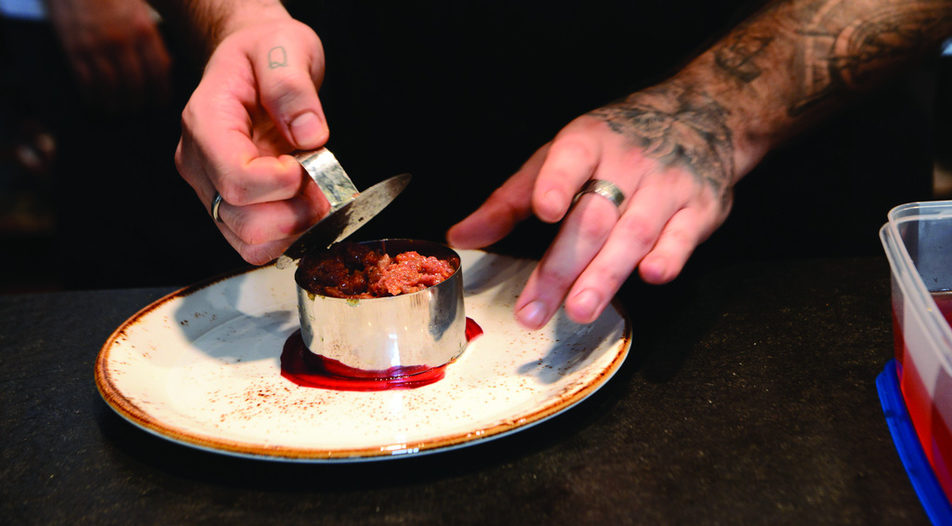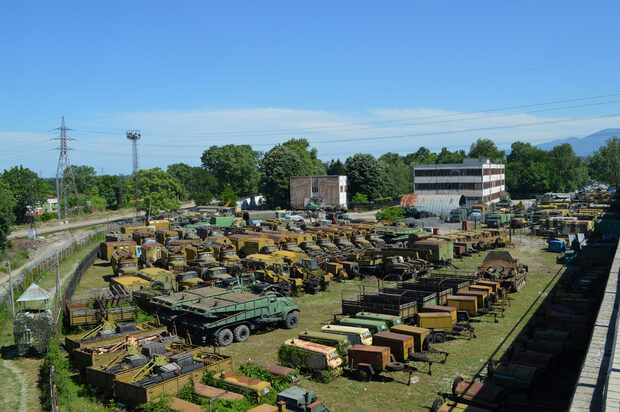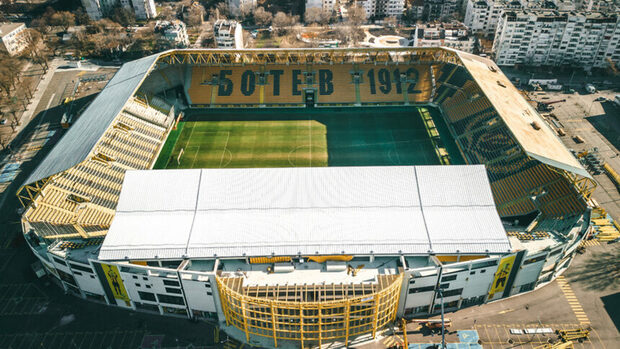For the first time in its 17-year history Bacchus magazine has awarded so many different prizes in its annual ranking Restaurant of the Year Bacchus, Acqua Panna & San Pellegrino, reflecting the emergence of more niche and innovative places that nourished Sofia and its gourmet culture in 2017.
The restaurant business in Bulgaria has always been particularly difficult to get into. On the one hand, the conservative and financially unstable customers set limits to the menu and its price range, which are hard to break. On the other hand, low margins and unpredictability are typical for that business. In turn, this makes the traditional business model unsustainable and a risky investment. Additionally, difficulties in procuring high-grade products and skilled staff further impede those who wish to step up their quality.
Even though these issues are quite relevant today, in the last several years there has been a visible change. Innovative places appeared, offering not just food but experience. Professional chefs risk it all and open their own restaurants, changing the base of culinary culture. Luxury starts to redefine itself - from exclusivity and exotic products to the local culture and its people. The gourmet experience managed to leave the bounds of expensive restaurants and enter the street cuisine.
OPEN HORIZONS
There are a few main reasons for this change. First, it is the savings most Bulgarians made over the last 15 years, which allow them to travel freely, explore and expand their culinary horizons. The second is the massive flow of tourists that low-cost airlines bring to Bulgaria - an adrenaline shot for the whole entertainment and restaurant sector.
"Lately the Bulgarian audience has managed to quickly catch up with the rest of the industry," says Dimitar Nikolov, owner of a "from the farm to the plate" restaurant Bagri (Colors). According to him, his guests are becoming more open and many of them are willing to be surprised. "I'm not saying that we are at the level of global tourist destinations but we are definitely on the way there," says Mr Nikolov.
"Yes, the restaurant scene is more attractive, but it remains a tough and niche business. There are improvements in the flow of tourists, even though, excluding TripAdvisor, we lack a communication channel directed towards the tourists themselves," says chef Tsvetomir Nikolov, owner of a relatively new gourmet restaurant in Sofia, Nikolas 0/360, which recently won the Restaurant of the Year award.
And here is Denislav Zvancharov, owner of Predi 10 (Before 10) - another restaurant in Sofia focusing on the local products and cuisine. He tells us that the flow of tourists is not all good and brings along some issues that ought to be addressed: "Many of the tourists predetermine the city as a low-cost destination, which then leads them to expect a budget experience throughout," he says. This attitude does attract investors to certain tourist areas of Sofia, Plovdiv and other big cities but it does not benefit the restaurants that really emphasize quality. In order to be successful, these restaurants need to grow a local audience able to appreciate their outstanding product.
HOW MUCH ARE WE WILLING TO SPEND?
Bulgaria's economic growth is also one of the leading factors for this rapid market expansion. Incomes rise, and with them grow the curiosity and willingness of people to spend more time out. Yet, prices rise almost in parallel with the increase in salaries, with the influx of tourists seeming to be the main catalyst for that appears to the flow of tourists.
According to Dimitar Nikolov, there are still people out there unwilling to pay much for their food. Chef Tsvetomir Nikolov thinks this seems to occur with Western tourists the most. When they arrive, they quickly shift to the local attitude and begin to compare prices with their local standard.
"It's a wide cultural, and maybe social, topic - to what degree do clients differentiate between food itself and the experience of visiting a good restaurant. Those, who appreciate the latter, are usually willing to pay more. However, there aren't many of them," Denislav Zvancharov explains.
He points out that good restaurants are feeling strong competition from far cheaper pseudo gourmet restaurants. "Sadly, part of our clients expect prices in quality gourmet restaurants similar to those they have seen in far cheaper restaurants. The quality of genuine gourmet simply can't be reached if you don't use the best products," says Mr Zvancharov.
A massive number of restaurants face financial problems daily. "On the one hand, you have the prices of products creeping up, and on the other you have the lack of predictability in the cash flow of the business," says the manager of "Nikolas 0/360", Galya Videnova. That doesn't only apply to Bulgaria, but globally.
THE PERPETUAL PROBLEMS: PRODUCTS AND STAFF
The wave of ecological practice has become a key element of the best restaurants around the world. In that regard Bulgaria is lagging behind but there are still some places managing to keep up with global trends. Yet, they usually encounter issues with acquiring local products from small farmers and suppliers.
The biggest problem, however, remains the lack of qualified staff. According to many restauranteurs, in addition to the shortage of staff there is a problem with the mindset that being a waiter in Bulgaria is a temporary job. In the kitchen there is a similar dearth of qualified people. But there is good news as well - some of the young, talented cooks who left Bulgaria years ago and gained a lot of experience abroad, are returning to Bulgaria.
All in all, despite the hardships in Sofia's culinary industry, it keeps getting better. More and more niche restaurants open each year, allowing customers to enjoy affordable gourmet, pastries, special cafeterias, modern Bulgarian cuisine, gourmet burgers, wine and gastro bars, craft beer bars and many more. And all of this makes the city of Sofia a richer and more exciting place to be.
For the first time in its 17-year history Bacchus magazine has awarded so many different prizes in its annual ranking Restaurant of the Year Bacchus, Acqua Panna & San Pellegrino, reflecting the emergence of more niche and innovative places that nourished Sofia and its gourmet culture in 2017.
The restaurant business in Bulgaria has always been particularly difficult to get into. On the one hand, the conservative and financially unstable customers set limits to the menu and its price range, which are hard to break. On the other hand, low margins and unpredictability are typical for that business. In turn, this makes the traditional business model unsustainable and a risky investment. Additionally, difficulties in procuring high-grade products and skilled staff further impede those who wish to step up their quality.












